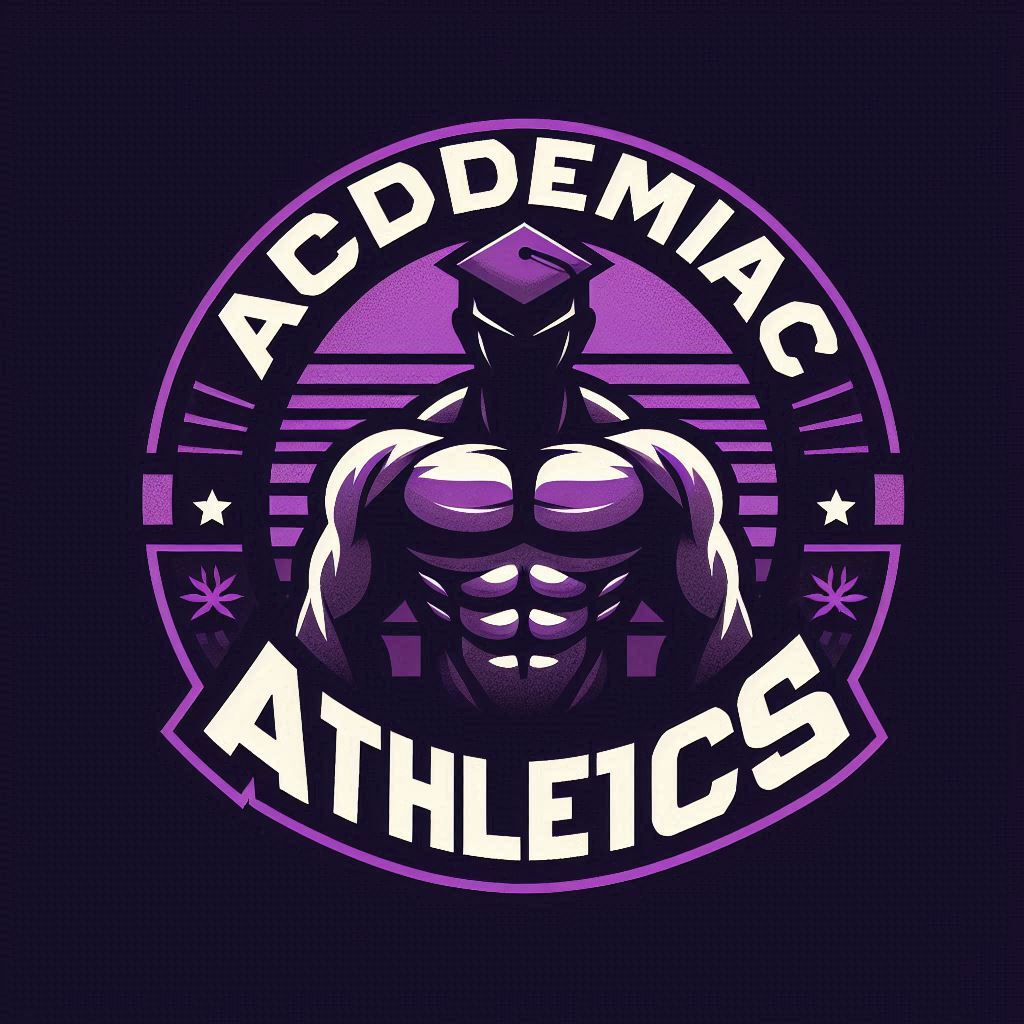Are you a skinny guy who dreams of having a muscular and well-built physique? Do you struggle with gaining muscle mass despite your best efforts in the gym? If so, you’re not alone. Many ectomorphs, or individuals with a naturally slim and lean body type, face challenges when it comes to bulking up. However, with the right knowledge and approach, you can achieve your muscle-building goals. In this comprehensive blog post, we will explore the science behind ectomorphs and muscle gain, the importance of nutrition in muscle building, the role of supplements, designing a workout plan, and even touch upon the impact of mental health on the journey to building muscle. So, let’s dive in and discover how you can transform your body and become the best version of yourself!
Understanding Your Body Type: The Ectomorph
Before we dive into the nitty-gritty of muscle building, it’s essential to understand your body type. Ectomorphs have a naturally fast metabolism, which makes it challenging for them to gain weight, especially in the form of muscle mass. This body type is characterized by a slender build, long limbs, and low body fat. However, being an ectomorph doesn’t mean that gaining muscle is impossible. With the right approach, you can overcome your genetic predisposition and achieve your desired physique.

The Science Behind Ectomorphs and Muscle Gain
Understanding the science behind ectomorphs and muscle gain is crucial for developing an effective training and nutrition plan. Ectomorphs have a higher ratio of type I muscle fibers, which are more endurance-focused and have less potential for hypertrophy compared to type II muscle fibers. This means that ectomorphs may need to incorporate specific training techniques to stimulate muscle growth effectively. Additionally, ectomorphs tend to have faster metabolisms, requiring them to consume a higher number of calories to create a calorie surplus for muscle growth.
Common Misconceptions About Ectomorphs
There are several misconceptions surrounding ectomorphs, which can hinder their progress in the gym. One common misconception is that ectomorphs can’t build muscle. While it may be more challenging for ectomorphs to gain muscle compared to other body types, it is by no means impossible. With the right approach, dedication, and consistency, ectomorphs can achieve remarkable results in their muscle-building journey. Another misconception is that ectomorphs should avoid cardio. In reality, incorporating some cardiovascular exercise can help improve overall fitness and cardiovascular health without hindering muscle growth.
Furthermore, it’s important to note that ectomorphs often have a higher tolerance for volume and frequency in their training. This means that they may benefit from incorporating more sets and exercises into their workouts, as well as training each muscle group more frequently throughout the week. By doing so, ectomorphs can provide their muscles with the necessary stimulus for growth.
In terms of nutrition, ectomorphs should focus on consuming a well-balanced diet that includes an adequate amount of protein, carbohydrates, and healthy fats. It’s crucial to fuel the body with enough calories to support muscle growth, but it’s equally important to choose nutrient-dense foods that promote overall health. Ectomorphs may also benefit from incorporating calorie-dense foods such as nuts, avocados, and nut butters into their diet to increase their calorie intake without feeling overly full.
Lastly, it’s important for ectomorphs to prioritize rest and recovery. Since their bodies have a higher metabolic rate, they may need more sleep and recovery time to allow their muscles to repair and grow. Incorporating rest days into their training routine and practicing stress-management techniques can help ectomorphs optimize their muscle-building potential.
The Importance of Nutrition in Muscle Building
No matter how hard you train, your progress in building muscle relies heavily on your nutrition. To effectively bulk up, you need to fuel your body with the right nutrients and create a caloric surplus. Let’s take a closer look at the importance of macronutrients and meal planning in your muscle-building journey.
Macronutrients: What They Are and Why They Matter
Macronutrients, namely protein, carbohydrates, and fats, play crucial roles in muscle building. Protein provides the building blocks for muscle growth and repair, while carbohydrates serve as a primary energy source for intense workouts. Healthy fats support hormone production and facilitate the absorption of various vitamins and minerals. As an ectomorph, it’s essential to ensure you’re consuming an adequate amount of each macronutrient to support your muscle-building goals.
Protein, the superhero of muscle building, is responsible for repairing and building new muscle tissue. It consists of amino acids, which are the building blocks of life. When you consume protein-rich foods, your body breaks them down into amino acids, which are then used to repair and build muscle fibers. This process is essential for muscle growth and recovery. Examples of high-quality protein sources include lean meats like chicken and turkey, fish like salmon and tuna, eggs, and dairy products like Greek yogurt and cottage cheese.
Carbohydrates, on the other hand, are your body’s preferred source of energy. When you engage in intense workouts, your muscles rely on carbohydrates to fuel your performance. They provide the energy needed to lift those heavy weights, push through those last few reps, and power through your training sessions. Complex carbohydrates, such as brown rice, quinoa, and sweet potatoes, are excellent choices as they provide a steady release of energy, keeping you fueled throughout your workouts.
Healthy fats often get a bad rap, but they are crucial for muscle building. They play a vital role in hormone production, which is essential for muscle growth and recovery. Additionally, fats help your body absorb fat-soluble vitamins, such as vitamins A, D, E, and K. Incorporating healthy fats into your diet can be as simple as adding a handful of nuts or a drizzle of olive oil to your meals. Avocados, coconut oil, and fatty fish like salmon are also excellent sources of healthy fats.
Meal Planning for Optimal Muscle Gain
Creating a well-rounded meal plan is vital to provide your body with the necessary nutrients for muscle growth. Focus on consuming high-quality protein sources such as lean meats, poultry, fish, eggs, and plant-based sources like tofu, beans, and legumes. Incorporate complex carbohydrates like brown rice, quinoa, and sweet potatoes to fuel your workouts and support muscle recovery. Don’t forget to include healthy fats from sources like avocados, nuts, and olive oil. Aim to eat multiple meals throughout the day and consider supplementing with protein shakes or bars to meet your macronutrient requirements.
When it comes to meal planning, timing is also crucial. Consuming a balanced meal or snack containing protein and carbohydrates within 30 minutes to an hour after your workout can help kickstart the muscle recovery process. This post-workout meal should ideally contain a mix of fast-digesting carbohydrates to replenish glycogen stores and protein to initiate muscle repair. Greek yogurt with berries, a chicken and quinoa salad, or a protein shake with a banana are all excellent options for a post-workout meal.
Furthermore, spacing out your meals throughout the day can help ensure a steady supply of nutrients to support muscle growth. Aim to eat every 3-4 hours, including a combination of protein, carbohydrates, and healthy fats in each meal. This approach helps prevent muscle breakdown and keeps your energy levels stable throughout the day.
In conclusion, nutrition plays a vital role in muscle building. By understanding the importance of macronutrients and incorporating them into a well-rounded meal plan, you can optimize your muscle gain. Remember to focus on high-quality protein sources, complex carbohydrates, and healthy fats, and don’t forget the importance of timing your meals to support muscle recovery. With the right nutrition strategy, you’ll be well on your way to achieving your muscle-building goals.
The Role of Supplements in Bulking Up
Supplements can be a valuable addition to your muscle-building journey. While they are not a magic solution, certain supplements can complement your efforts and optimize your results. Let’s explore some essential supplements for muscle growth and debunk some common misconceptions surrounding quick fixes like steroids.

Essential Supplements for Muscle Growth
When it comes to supplements, there are a few key players that can support muscle growth. Whey protein powder is a popular choice for its convenience and easily digestible nature. Creatine monohydrate has been extensively studied and shown to improve strength and high-intensity exercise performance. Branched-chain amino acids (BCAAs) can aid in muscle recovery and reduce muscle soreness. However, it’s important to remember that supplements should not replace a well-rounded diet and should be used in conjunction with a proper training and nutrition plan.
The Truth About Steroids and Other Quick Fixes
In the pursuit of quick results, some individuals may be tempted to turn to steroids or other performance-enhancing substances. It is essential to recognize the dangers and potential long-term consequences of such choices. Steroids can have significant health risks and can lead to hormonal imbalances, liver damage, and psychological effects. Instead of seeking quick fixes, focus on sustainable and healthy methods of muscle building, as they will yield long-lasting and fulfilling results.
Designing a Workout Plan for Skinny Guys
Having the right workout plan is paramount for skinny guys looking to build muscle. Here, we will explore the best exercises for ectomorphs, the importance of rest and recovery, and how to design an optimal training routine.

The Best Exercises for Ectomorphs
Ectomorphs can benefit from compound exercises that target multiple muscle groups simultaneously. Focus on movements like squats, deadlifts, bench presses, and pull-ups to stimulate overall muscle growth. Additionally, incorporating isolation exercises can help address weaker muscle groups and promote balanced development.
Understanding the Importance of Rest and Recovery
Rest and recovery are often overlooked components of muscle building, but they are just as important as your training and nutrition. Adequate rest allows your muscles to repair and rebuild, leading to increased strength and muscle growth. Aim to get enough sleep, typically between 7-9 hours per night, and consider implementing active recovery days to promote blood flow and reduce muscle soreness.
Mental Health and Muscle Building
Although physical changes are highly sought-after in the process of muscle building, it’s essential not to neglect your mental health along the way. In this section, we will explore common body image issues and discuss the psychological benefits of gaining muscle.
Overcoming Body Image Issues
Building muscle is not only about transforming your body physically; it’s also an opportunity to work on your mental well-being. Many individuals, regardless of body type, struggle with body image issues. It’s important to focus on progress rather than perfection and set realistic goals. Surround yourself with a supportive community and seek professional help if necessary to address any underlying body image concerns.
The Psychological Benefits of Gaining Muscle
Gaining muscle and transforming your body can have a profound impact on your overall well-being. Physical activity releases endorphins, which can improve mood and reduce anxiety and depression. Additionally, the sense of accomplishment and increased self-confidence that comes with building muscle can positively influence various aspects of your life, such as relationships, career, and personal growth.
As you embark on your journey to building muscle and bulking up, remember that the process takes time, patience, and consistency. Equip yourself with knowledge, develop a solid training and nutrition plan, and prioritize your mental well-being. By adopting a holistic approach that encompasses both physical and mental aspects, you can achieve remarkable results and become the best version of yourself. So, embrace the challenge and embark on your transformational journey towards a stronger and more confident you!
